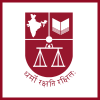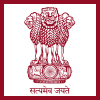Food Safety
Food Safety
Food safety is a scientific field that outlines how to prepare, handle, and store food in order to avoid getting sick or contracting diseases from it. Every consumer has a right to information about the safety and quality of the food they eat. The Food Safety and Standards Authority of India (FSSAI) is an independent organization created by the Indian government’s Ministry of Health and Family Welfare. It was founded in accordance with India’s Food Safety and Standards Act of 2006, which deals with food safety and regulation. The FSSAI is in charge of regulating and monitoring food safety in order to safeguard and advance public health.
Complaint Redressal Mechanism
(i) With the Shopkeeper, Manufacturer, or Food Aggregator
The first step that a consumer shall undertake is to reach out the food aggregators or shopkeepers for resolution of their complaints. Upon receiving an unsatisfactory response or no response at all, the consumer shall undertake other recourses such as reaching out to the FSSAI or using other quasi-judicial forums available.
(ii) With the Food Safety amd Standards Authority of India (FSSAI)
There are various ways of approaching the FSSAI (regulatory body) for registration of food safety related consumer complaints. The following link provides the toll-free number and other contact details for registering complaints: Click here
The current online Food License and Registration System “FLRS”) includes a facility for FSSAI to address food safety concerns called “Food Safety Connect.” This online forum enables customers to voice their concerns and provide input about food safety issues such as tainted, dangerous, or subpar food, food labeling flaws, and false or deceptive claims and ads for various food products. When a food concern is successfully registered, the consumer receives a special concern number by SMS at the cellphone number supplied at the time of registration. This reference number may be used in the future to follow the customer’s issue in the online system.
The following is the link for Food Safety Connect Portal: Click here
Moreover, the following link contains the contact details of the grievance redressal mechanism at the state levels: Click here
Furthermore, the FSSAI also has signed up to the Centralized Public Grievance Redress and Monitoring System (CPGRAMS), which is an online platform available to consumers 24*7 to lodge their grievances to the public authorities on any subject. The following link could be used to register a complaint through the CPGRAMS portal: Click here
(iii) Approaching any other appropriate judicial or quasi-judicial body
The complainant is free to take the service provider to a court or any other suitable venue (judicial or quasi-judicial). The proceedings in consumer commissions are not mired by the niceties of procedure, allowing the complainant to file a complaint for himself. As a consumer, the aggrieved party can take the service provider to the appropriate consumer commission, based on the pecuniary and territorial jurisdiction. The jurisdictions of the various consumer commissions are as follows-
a) District Commission: The aggrieved consumer can reach out to the District Commission under section 34 of the CPA, 2019, which provides that the district commission shall entertain matters where the value of the goods or services paid as consideration does not exceed more than one crore rupees.
b) State Commission: In cases where the value of the goods or services paid as consideration is more than one crore, but less than 10 crores, the consumer can approach the State Commission. Moreover, in cases of unfair contracts, the State Commission has original jurisdiction and the consumer can be directly approached. An appeal against the order of the District Commission can also be made under section 47 of the CPA, 2019.
c) National Commission: The National Commission can entertain matters where the value of goods or services paid as consideration exceeds 10 crores. Section 58 also provides that complaints against unfair contracts can be entertained by NCDRC when the amount of value paid exceeds 10 crores. The NCDRC also has appellate jurisdiction against the orders of any State Commission and Central Authority.
Moreover, it must also be kept in mind, that section 100 of the CPA, 2019 provides that the remedy under CPA is in addition and not in derogation of other available remedies.
Another remedy available to consumers is mediation. Chapter 5 of the Consumer Protection Act provides for establishing mediation cells and resolving consumer complaints using mediation.
The following link could be used to file complaints online: Click here
Regulatory Body
The regulatory agency in charge of this industry is the Food Safety and Standards Authority of India (FSSAI). It is an independent organization created by the Indian government’s Ministry of Health and Family Affairs. By regulating and monitoring food safety, FSSAI is in charge of preserving and advancing public health. The FSSAI was established to establish science-based standards for food products and to control their production, storage, distribution, sale, and import to guarantee the availability of healthy, safe food for human consumption.
Acts
- The Food Safety and Standards Act, 2006
- Food Safety and Standards Rules, 2011
- Food Safety and Standards (Contaminants, Toxins and Residues) Regulations, 2011
- Other relevant laws and regulations relating to food safety can be accessed using the following link: Click here
Landmark Judgements
1. Swami Achyutanand Tirth and Ors. v. Union of India (UOI) and Ors.
In the present case, the Court laid down various guidelines for the government including, the proper implementation of Food Safety and Standards Act, 2006, identifying high risk areas where the chances of adulteration are more, maintaining adequate lab testing infrastructure, and others.
2. Hindustan Coca-Cola Beverages Pvt. Ltd. v. Purushottam Gaur
In this case, the consumer found insects in his fanta bottle. The NCDRC held that since the company did not provide any assistance to the laboratory or did not make any attempt to address the questions on origin of bottle, the case stand proved against the company, and it is held liable.

